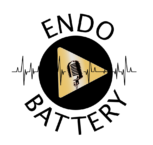
Send us a text with a question or thought on this episode
Navigating the often murky waters of chronic illness like endometriosis can be a lonely endeavour. But what if you could find solace, understanding, and support in a community of individuals who are walking the same path as you? Welcome to our special Friendsgiving episode, where we deep dive into our personal experiences with endometriosis, how we've built a robust support system, and the power of being honest with each other.
We also unpack the value of community and gratitude, especially during the holiday season. We share our personal tales of Friendsgiving celebrations, the tricky navigation of tough family conversations, and how we cope with the added stress that holidays bring. We also introduce you to our unique endometriosis support network which is a lifeline of resources and support for those in need. On a lighter note, we chat about the simple joys of seasonal decorations and our shared love for pumpkins, despite their allure to the neighborhood squirrels! Also our shared addition to the Just Peachy drink from Ziggi's Coffee.
As we move forward, we delve into the impact and power of online support communities, particularly for those battling chronic conditions like ours. We share our experiences of how finding our tribe online has helped us cope better and feel less alone. We stress the importance of expanding these communities beyond just patients, as it can positively impact others' health and lives. As we wrap up, we reflect on the significance of community and gratitude in sustaining us during challenging times and the role they play in maintaining connections. We also contemplate the beauty of Friendsgiving as a time to celebrate with our loved ones and to express gratitude for the good in our lives. We hope this episode leaves you feeling less alone, more connected, and perhaps even a little thankful!
Website endobattery.com
